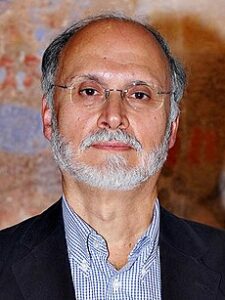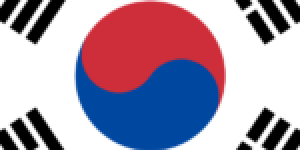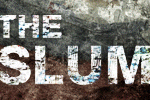Gilbert Achcar On The New Cold War
No Comments yetThe risk of a new Cold War has greatly increased in recent times, not only because of Russia’s invasion of Ukraine but also because the US has acknowledged China as a superpower rival that needs to be contained. This is the version about current international affairs that one encounters among mainstream analysts. However, Lebanese socialist scholar Gilbert Achcar claims that this interpretation of interstate relations in today’s world is a misrepresentation of the evolution of global politics since the official end of the period known as the Cold War, which lasted from 1947-1991, and rests on a confusing notion around the issue of a “new Cold War.” Indeed, in the interview that follows, Achcar argues that a New Cold War has been underway since the late 1990s and we are now at a stage where it could get hot.
Gilbert Achcar is professor of development studies and international relations at the School of Oriental and African Studies, University of London. He is the author of many books, including The People Want: A Radical Exploration of the Arab Uprising; The Clash of Barbarisms: The Making of the New World Disorder; Perilous Power: The Middle East and U.S. Foreign Policy (co-authored with Noam Chomsky), and Marxism, Orientalism, Cosmopolitanism. His latest book, which was just released, is The New Cold War: The United States, Russia and China from Kosovo to Ukraine (Haymarket Books 2023).
C. J. Polychroniou: Russia’s invasion of Ukraine and its partnership with China have led many commentators to speak of the beginning of a New Cold War. However, in your newly released book The New Cold War: The United States, Russia, and China from Kosovo to Ukraine, you argue that a new geopolitical East-West divide, and thus the emergence of a New Cold War, can be traced back to the late 1990s, and specifically to the Kosovo war. Let’s start with your understanding of the term “cold war” because I can see many objecting to your interpretation of the interaction of states in the global interstate system prior to Russia’s invasion of Ukraine.
Gilbert Achcar: There is a lot of confusion indeed around the issue of a new cold war. The uses of the expression did not start proliferating now, but since 2014 regarding US relations with Russia and since Trump for those with China. The range of opinions remained the same though, between those who believe that we’re in the thick of it, those who believe that it has only started now with the invasion of Ukraine, and those who are still warning of it as a potential outcome! What is right in all this, however, is that the notion of “cold war” is not conflated with the ideological and systemic opposition that existed between the Soviet-led and the US-led blocs. The origins of the expression “cold war” and of the notion of a New Cold War are both discussed in detail in my book.
Basically, a “cold war” is a situation in which a country maintains a state of preparation for war without being (yet) engaged in a “hot war.” In other words, the arms race is what made the Cold War be called as such, and I have explained since the late 1990s how the United States had decided to maintain a level of military expenditure based on the scenario of a war simultaneously waged against Russia and China. This decision was related to other provocative stances by Washington, which led me to identify the beginning of what I called the New Cold War in 1999. What happened since could only confirm this diagnosis, and it is rather amusing that today, when the world is as close to a very hot world war as it has ever been since 1945, some are still reluctant to call a spade a spade!
CJP: Who is the real enemy for Washington at the time you situate the genesis of the New Cold War, and why is the war in Kosovo such a dramatic turning point in the post-Cold War world?
GA: There were a lot of comments after the demise of the USSR about Washington’s need to invent a new global enemy. Some believed that “terrorism” had solved the problem, but “terrorism” is in no way the kind of “peer competitor” that Washington needs to secure the allegiance of its Cold War allies, which Zbigniew Brzezinski famously called its “vassals.” By basing its actual behavior on the assumption that both Russia and China were potential enemies, the United States has recreated tensions with Russia—and created new ones with China, after cooperating with it against the USSR during the last 15 years of the Cold War.
The Kosovo war was decisive because it shattered any illusions Moscow and Beijing might have had about the “new world order” promised by George Bush Sr. in 1990, when he was preparing for the first US-led war on Iraq conducted in the name of international law and sanctioned by a UN Security Council resolution that Moscow approved and on which Beijing abstained. Bush Sr.—in a famous speech delivered, by an irony of history, on September 11, 1990—had promised that, from then on, the world would be “quite different from the one we’ve known: a world where the rule of law supplants the rule of the jungle.” Moscow and Beijing hoped that the UN would henceforth play the role for which it had been initially designed, thus giving them a veto right about the use of force in international relations. Likewise, Bill Clinton’s administration had assured Moscow that NATO’s enlargement to Poland, Hungary and the Czech Republic was not intended against Russia. And yet, the same year 1999 when that enlargement was sealed is the year when NATO launched its first war ever, the Kosovo war, circumventing the UNSC and thus violating international law.
CJP: Putin was elected Russia’s president just a few months after the Kosovo war and immediately embarked on a series of rather dramatic domestic and foreign policy measures designed to make Russia stronger and, once again, a major actor in global affairs. From your point of view, was Putin’s decision to invade Ukraine simply a reaction to the enlargement of NATO and its growing strategic relationship with Ukraine or, as some mainstream scholars have argued, perhaps also part of a plan to reconstitute the Russian empire with a return to 19th century imperialist practices?
GA: There is truth in both explanations, in my view. NATO’s eastward enlargement in the 1990s, along with the neoliberal “shock therapy” that Washington promoted in post-Soviet Russia and its encouragement for Boris Yeltsin’s antidemocratic behavior, laid the ground for Putin’s ascension to power. He had to swallow in turn the very bitter pill of a second round of NATO enlargement, sealed in 2004, which added to the Alliance the three former Soviet Republics of the Baltics, along with other East European states. He then drew a red line regarding the two other former Soviet Republics eyed by NATO—Ukraine and Georgia—which also had a common border with Russia.
When, in 2008, George W. Bush pushed for the accession of both states to NATO and obtained from the Alliance a pledge to integrate them despite French and German reluctance, Putin acted, first by encroaching on Georgia in 2008, then by annexing Crimea and encroaching on Eastern Ukraine in 2014, after the Ukrainian upheaval of that same year and Kyiv’s subsequent shift away from Russia. These encroachments were meant to create a state of belligerence with both countries rendering impossible their accession to NATO, lest the Alliance find itself in a state of belligerence with Russia.
For that purpose, the encroachment on Eastern Ukraine would have been enough. The annexation of Crimea served another purpose, that of bolstering Putin’s domestic popularity, after it had sunk to a low following his comeback as president in 2012 against a backdrop of mass protests. Putin played on Russian nationalism and revanchism to revamp his regime’s credentials and has been developing ever since a discourse of Russian imperial nostalgia. NATO’s enlargement to Ukraine had been made impossible since 2014. The invasion of Ukraine on February 24, 2022, cannot therefore be explained by the NATO factor. It was a botched and heavily miscalculated attempt by Putin to subdue Ukraine, possibly with a view to merge it with Russia. It also accelerated the drift of his regime toward neo-fascism: a nationalist dictatorship based on fake democracy.
CJP: Today, Russia and China are closer than ever and are attempting to change the world order. What are the differences and similarities between the New Cold War and the Old Cold War?
GA: Part of the reply to your question is in the question itself: since 1961, China entered in a very conflictive relation with the USSR, which eventually led it to work with the United States against its “communist” rival, starting in the 1970s, until the Soviet system began to crumble.
Secondly, of Russia and China, it is the second that is the major power nowadays: Russia maintains a top-level military capability—although it lost a lot of “credibility” with its current failure in Ukraine—but its GDP was lower than South Korea’s in 2021!
A third difference is that, whereas the Cold War was characterized by systemic opposition between two blocs, the New Cold War is not. Putin has more admirers on the far right, including Donald Trump, than there are people on the left who live in a time warp believing that Putin is Stalin’s reincarnation. China, on the other hand, is loathed by the hard right as a “communist” country. The alliance between Moscow and Beijing is not due to systemic affinities. The idea that we are witnessing a conflict between democracy and authoritarianism is but an attempt to recycle Washington’s Cold War vacuous pretense of embodying the Free World. The fact that someone like India’s far-right authoritarian ruler, Narendra Modi, is a regular star at Joe Biden’s Summit for Democracy, and that Brazil’s far-right Jair Bolsonaro took part in the previous edition held in December 2021, is eloquent enough.
The main similarity is what constitutes a “cold war” in the first place: an ongoing military build-up on both sides of the fence and an ever-increasing tendency to consider international relations as a zero-sum game, whereby the three protagonists are competing for global influence.
CJP: Could this New Cold War turn hot?
GA: Well, unfortunately yes, and that is related to another difference between the New Cold War and the old. There was some degree of predictability regarding the USSR during the Cold War. Bureaucracies are conservative by nature, and the Soviet bureaucracy was no exception. It was on the defensive most of the time, including when it ventured out of its post-1945 domain for the first time by invading Afghanistan at the end of 1979. It was then terrified by the prospect of a spread of Islamic fundamentalism to the Central Asian Soviet Republics in the wake of Iran’s “Islamic Revolution.”
Things have changed with Putin. A nationalist regime, politically autocratic and economically oligarchic, is much more prone to military adventures than a bureaucratic regime. The result is that Putin has already launched more wars than the USSR had after 1945 until its demise: Chechnya, Georgia, Ukraine, Syria, to which one must add the intervention of the Wagner paramilitary group in Libya, Sudan, Mali and the Central African Republic. The very existence of the Wagner Group is very telling about the nature of Russia’s regime, where the boundaries between public and private interests are quite porous.
China, on the other hand, is still acting according to the conservative logic of its ruling bureaucracy. It hasn’t yet launched any war out of its territory. It regards its actions toward Taiwan as well as its naval maneuvers in the seas surrounding its territory as defensive against US military encirclement of China and ceaseless US provocations.
As for the United States, it has launched imperial military expeditions all over the globe after 1945, including two major wars in Korea and Vietnam and several lesser interventions. It then inaugurated the end of the Cold War with a massive attack on Iraq in 1991, followed by wars in the Balkans and Afghanistan, and the 2003-2011 occupation of Iraq. It resorts intensively and illegally to “remote warfare,” principally using drones. And it is more and more provocative toward China: after Russia’s invasion of Ukraine, it sped up its collision course with Beijing instead of attempting to detach it from Moscow.
Add to all this that Putin has been threatening to use nuclear weapons, and you get a sense of how dangerous the present world situation has become. The global arms race has reached new heights indeed. The Stockholm International Peace Research Institute (SIPRI) recently observed that world military spending has grown in 2022 to an all-time high of $2240 billion. They added: “Military expenditure by states in Central and Western Europe totalled $345 billion in 2022. In real terms, spending by these states for the first time surpassed that in 1989, as the cold war was ending.” They also noted that “US military spending reached $877 billion in 2022, which was 39 per cent of total global military spending and three times more than the amount spent by China.” Just imagine what could be done in the fight against climate change, pandemics, and hunger with but a fraction of these enormous sums.
Source: Originally published by Z. Feel free to share widely.
Gilbert Achcar grew up in Lebanon. He is a Professor of Development Studies and International Relations at the School of Oriental and African Studies (SOAS) in London. His books include The New Cold War: Chronicle of a Confrontation Foretold. Morbid Symptoms: Relapse in the Arab Uprising; The People Want: A Radical Exploration of the Arab Uprising; The Clash of Barbarisms; Perilous Power: The Middle East and U.S. Foreign Policy; and The Arabs and the Holocaust: The Arab-Israeli War of Narratives. He is a member of Anti-Capitalist Resistance.
C.J. Polychroniou is a political scientist/political economist, author, and journalist who has taught and worked in numerous universities and research centers in Europe and the United States. Currently, his main research interests are in U.S. politics and the political economy of the United States, European economic integration, globalization, climate change and environmental economics, and the deconstruction of neoliberalism’s politico-economic project. He is a regular contributor to Truthout as well as a member of Truthout’s Public Intellectual Project. He has published scores of books and over 1,000 articles which have appeared in a variety of journals, magazines, newspapers and popular news websites. Many of his publications have been translated into a multitude of different languages, including Arabic, Chinese, Croatian, Dutch, French, German, Greek, Italian, Japanese, Portuguese, Russian, Spanish and Turkish. His latest books are Optimism Over Despair: Noam Chomsky On Capitalism, Empire, and Social Change (2017); Climate Crisis and the Global Green New Deal: The Political Economy of Saving the Planet (with Noam Chomsky and Robert Pollin as primary authors, 2020); The Precipice: Neoliberalism, the Pandemic, and the Urgent Need for Radical Change (an anthology of interviews with Noam Chomsky, 2021); and Economics and the Left: Interviews with Progressive Economists (2021).
You May Also Like
Comments
Leave a Reply









